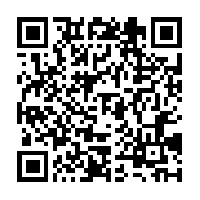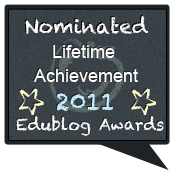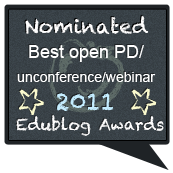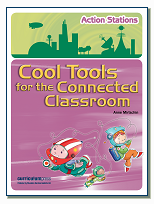“A comment a day encourages bloggers to have their say.” (A quote from one of my twitter friends.)
When using online tools, the power of leaving comments when viewing other people’s work should not be overlooked. Comments can be made on blogs, podcasts at www.podomatic.com, teacher tube etc and even be added to some vokis and voicethreads.
Comments on student blogs are one of the highest motivational factors and drivers that I have witnessed in my classroom over many, many years of teaching!
I can still remember the excitement, when our classroom blog received its first comment. Someone was actually reading our post on the www.backyard.globalstudent.org.au It read:-
Your “backyard” is beautiful! Thank you for sharing it with the world. (Lori, California)
…and the comment was from overseas!! How absolutely fabulous!! That was it, the posts went up regularly – all students wanted comments, so they knew they had to complete the work, write interestingly and well, add images, if possible, for added impact and there was a need to proofread.
Here are more reasons on why comment!! (taken primarily from an educational angle)
-
There is an authentic audience that is now tangible. Another memory from early this year, was hearing a simultaneous whoop of delight from my year 9/10 IT elective students when they discovered people were commenting on their posts. Now, that is a sound, we rarely hear in our traditional classrooms!!
-
Comments can be so highly motivating. There is an authentic audience and real people are reading (it is not just for an assessing classroom teacher).
-
They can lead to conversations. Students from the USA made comments on older student blogs asking for feedback on what USA was mentioned. That made my students sit down and think!!
-
Connections are made by replying to the email address that must be shown when commenting.
-
Establishes social networks The most experienced bloggers maintain good social networks as they email replies to all comments and conversations extending the post to even greater depth and levels.
-
Teaches students and adults cybersafety techniques. Comments on most blogs require approval before they are published online, so students are taught responsibility for diagnosing and filtering appropriate material.
-
It may activate student-led learning. Comments on some student posts have aroused the curiousity of students – the location of the person making the comment, the need to research further a comment on Mt Helen’s volcanic eruption, a question that requires higher order thinking skills etc
-
An increase in personal confidence. People care about the writer and the content of the post. Further dots are appearing on their clustr maps etc. Students want to share their work and here is proof that they are – whether it be another teacher, parent friend or global visitor.
-
Encourages regular posts – which helps increase reading and writing skills
-
May drive the blogger to read the commentator’s blogs and learn about other cultures, ideals, thoughts, geographical areas and learning activities taking place in other schools around the globe.
Next time, you read a post, even if it is just a short one liner, please make a comment and it will make a big difference to the writer- whether they be experienced or inexperienced.



















 Twitter/murcha
Twitter/murcha Del.icio.us/murcho
Del.icio.us/murcho GMail/Anne M
GMail/Anne M Blog/Anne M
Blog/Anne M
Interesting the quote “a comment a day encourages a blogger to have their say” really grabs your attention but best of all I love the cartoon you created.
The best part of comments is they make you reflect more especially if the commenter offers you a different view of the topic. And they definitely encourage conversations.
Thanks Murcha. They are all powerful reasons for students and teachers to blog. I encourage the teachers in my cluster schools to set up blogs but they haven’t seen the value / relevance in them yet. I will persist, especially when they talk about audience. They are so focused on DOING literacy they don’t have time to blog as well. Why does it have to be an extra? Look forward to using this post in my next school visit. Can’t wait to get those conversations going.
Absolutely agree Ann , My class has not gone public with their comments yet but they are delighted when they get comments from others in the class . In the past (BB-before blogging) I used epals to promote this kind of connection and the reactions were fantastic among year9s when someone received a response. At this age it is hard to impress them or enthuse them but the authenticity of audience is so powerful and has made students become better ,more thoughtful writers. Note to self – do more commenting!
Great post ! Yes, definitely, blogging cannot be a one direction communication. Commenting not only give satisfaction to the blogger, but also helps readers to get a better view on the topic as multiple points of view is always valuable.
On point 6: the only problem I see with pre-moderation is that is slow down a lot the conversation and often make commenting less valuable.
A good summary we can all use to promote the art of blogging. Thx.
I really enjoyed your post. In fact, it motivated me to leave a comment! I can relate to your students, as I just received my first comment on my new blog the other day – very exciting, even for me.
Part of the work we do with our class blog is to have the students make comments about a topic I bring up, or about a classmates work – a form of peer assessment, I suppose. So far, they’ve enjoyed it. My next step (this term) is to get them writing posts themselevs. I hope they’ll get some comments on their posts, beyond their classmates and parents. But how do we do that? Is it a matter of putting your blog ‘out there’ more often?
Nice summary. The question of how not only to get comments happening on student blogs, but also to keep them happening, without starting to feel “schooly,” is one that came up in a Teachers Teaching Teachers webcast (podcast will be posted soon – called “Making Youth-Twitter Less ‘Schooly'” or something like that) I was in this week – with students 🙂
Several of the students taught us that assigned comments didn’t feel authentic and led to indifference – and a student I had last year said that he figured out this year that tweeting his new posts got him readers and comments from his twitter network.
That’s the future to me: students taking control of their own network-formation (I teach high school, where that level of maturity should be encouraged and guided), their own connecting.
Andrew (my student last year) reflected on the TTT discussion on his blog here.
Enjoyed the post – Sue Waters sent (“ordered”) me here 🙂
This is very motivational! I know you are right about one liners. This is another must save post for future use.
Thanks
I love the quote and the post. I have to admit that I look forward to comments, even one liners. This post was shared with me by Bill Gaskins on Google Reader (just thought you’d like to know!)
Hi Ann,
I’d like to add a second part to your 5th reason, “Commenting establishes social networks.” Commenting also builds a sense of community. Most of the student blogging projects I’ve been involved with are at our lower socio-economic sites, where students often feel disconnected or left out of their “real time” community. It only takes a few comments for students to start to feel that virtual connection – and for many students, that can make all the difference.
Gail
Great rationale for commenting from a teacher’s perspective! Yesterday a grade 5 ESL class I’m working with received their first comment from “outside.” They were actually jumping up and down and screaming with excitement. For students that are nervous about their language skills, this was the ultimate motivating factor.
The thing I have to remember is that it’s equally important for me to leave comments on the blogs I read. I so rarely take the time to stop and leave a comment – even though I’m usually mentally composing one as I read! Great reminder!
In reply to Kim’s comment:
Thank you for your comment on my ‘comments’ post. I think I squealed with delight when I got my first comment, and my year 9 girsl definitely did as well. Even the year 10 boys were almost shouting with delight. But, like you I also need to go back through student posts and add them where possible. Some students dont seem to get any and others get quite a few depending on their network.
One of my year 8 boys, deliberately canvases for comments, often at the expense of time spent on posting. However, it shows the importance of comments to those students.
Hi Ann,
Awesome post and I love the cartoon. Like Kim I often compose in my head and then don’t quite make it as far as writing my comment down. So I’m being a good girl and writing down my comment. I have started blogging with my class this year ( 9 & 10 year olds) and I have seen just how excited my kids get when a comment is left for them. We have an added difficulty when it comes to the children receiving comments as I’m required to maintain a password protected blog. I had to agree to this in order to be allowed to blog with the children, but it makes getting that authentic audience and the flow of discussion/conversation even more difficult. I have a few teachers I know through Twitter who I have provided with an invitation to read the blog. They are really good about reading and commenting and the children are thrilled by this. Many of their parents have come to visit the blog, but only 2 have left comments. I’m currently looking at ways to encourage more feedback/involvement from parents. My biggest issue is that this “walled garden” makes it difficult for the full potential of classroom blogging to be realised.
I have seen first hand just how powerful and motivating comments from an authentic audience can be for young bloggers ( and grown up ones too – still get a thrill when I have comments on my blog).
Thanks for sharing your thoughts on this topic – i have a lot to take away and process.
Pingback: Commmitting to Conversations | always learning
Well, I’d like to say that your site is very interesting.
Hi,My name is Mary Morgan,my blog is here